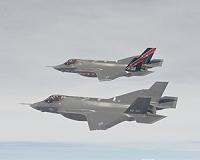 |
Moscow (UPI) Aug 16, 2010 The International Convention on Cluster Munitions entered into force Aug. 1. Delegates from 107 nations agreed and signed the final draft of the treaty at the end of a 10-day meeting held in May 2008 in Dublin, Ireland. Both the United States and Russia opposed the treaty then and now. China, India, Pakistan and Israel also have declined to ratify the agreement. The convention requires signatory states to cease the production, stockpiling and use of cluster munitions and their export, while signatory states are also required under terms of the convention to destroy all stockpiles of these armaments in their possession within eight years of ratifying the convention, Russia's Nezavisimoe Voennoe Obozrenie military newspaper reported Sunday. Cluster munitions, in use since World War II, disperse shrapnel-filled bomblets over a wide area when deployed either from aircraft or fired from ground-based artillery units. Cluster bombs have attracted much negative publicity since their deployment, as some estimates conclude they kill almost 98 percent of civilians over their deployed areas. Further complicating their usage, cluster bombs frequently have bomblet units that fail to detonate on impact, leaving residual submunitions that can remain mostly undetected despite remaining active, causing casualties years or even decades after their deployment. In Southeast Asia bomblets of cluster bombs dating back to the Vietnam War still maim and kill hundreds of civilians each year in Laos, Cambodia and Vietnam. Not surprisingly, Laos will host the first meeting of the convention in November. Since the 1991 collapse of the Soviet Union the Russian Federation has deployed cluster bomb munitions in its two wars in Chechnya, most notably in a January 1995 incident in which Russian fighters repeatedly bombed the Chechen town of Shali with cluster bombs, eventually dropping 18 cluster bombs, killing at least 55 and wounding 186. Russian military analysts and Ministry of Defense specialists base their objections to the convention on the fact that it does not contain an absolutely precise, universally accepted international definition of exactly what a cluster weapon is. Critics maintain that in the absence of such specifics, not only bombs, missiles and shells housing hundreds of other pieces of explosive ordnance containing submunitions but combat aircraft with dozens of bombs on board, volley fire systems and even tanks could be classed as cluster weaponry. More recently, Russia used cluster bombs in its August 2008 conflict with Georgia, while another non-signatory state, Israel, also deployed cluster munitions in its campaign against Hezbollah in southern Lebanon in 2006.
Share This Article With Planet Earth
Related Links The Military Industrial Complex at SpaceWar.com Learn about the Superpowers of the 21st Century at SpaceWar.com
 Israel to buy world's most advanced warplane
Israel to buy world's most advanced warplaneJerusalem (AFP) Aug 15, 2010 Israel's Defence Minister Ehud Barak on Sunday approved the purchase of a fleet of US-built F-35 strike fighters in a move set to ramp up the capabilities of the Israeli Air Force. The minister "approved in principle" a recommendation by the military to purchase the F-35 or Joint Strike Fighter (JSF), a statement from his office said. Israel is initially expected to buy 20 of the aircraf ... read more |
|
| The content herein, unless otherwise known to be public domain, are Copyright 1995-2010 - SpaceDaily. AFP and UPI Wire Stories are copyright Agence France-Presse and United Press International. ESA Portal Reports are copyright European Space Agency. All NASA sourced material is public domain. Additional copyrights may apply in whole or part to other bona fide parties. Advertising does not imply endorsement,agreement or approval of any opinions, statements or information provided by SpaceDaily on any Web page published or hosted by SpaceDaily. Privacy Statement |